
John Hoyer Updike was an American novelist, poet, short-story writer, art critic, and literary critic. One of only four writers to win the Pulitzer Prize for Fiction more than once, Updike published more than twenty novels, more than a dozen short-story collections, as well as poetry, art and literary criticism and children's books during his career.

John Michael Crichton was an American author, screenwriter and filmmaker. His books have sold over 200 million copies worldwide, and over a dozen have been adapted into films. His literary works heavily feature technology and are usually within the science fiction, techno-thriller, and medical fiction genres. Crichton’s novels often explore human technological advancement and attempted dominance over nature, both with frequently catastrophic results; many of his works are cautionary tales, especially regarding themes of biotechnology. Several of his stories center specifically around themes of genetic modification, hybridization, paleontology and/or zoology. Many feature medical or scientific underpinnings, reflective of his own medical training and scientific background.
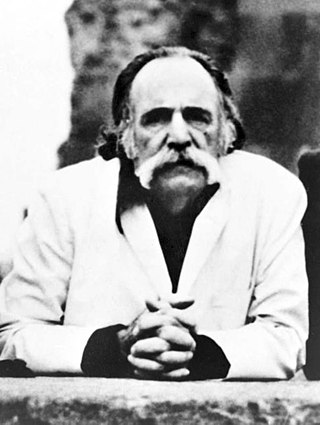
William Saroyan was an Armenian-American novelist, playwright, and short story writer. He was awarded the Pulitzer Prize for Drama in 1940, and in 1943 won the Academy Award for Best Story for the film The Human Comedy. When the studio rejected his original 240-page treatment, he turned it into a novel, The Human Comedy.

William Cuthbert Faulkner was an American writer known for his novels and short stories set in the fictional Yoknapatawpha County, based on Lafayette County, Mississippi, where Faulkner spent most of his life. A Nobel laureate, Faulkner is one of the most celebrated writers of American literature and often is considered the greatest writer of Southern literature.

Joel Chandler Harris was an American journalist and folklorist best known for his collection of Uncle Remus stories. Born in Eatonton, Georgia, where he served as an apprentice on a plantation during his teenage years, Harris spent most of his adult life in Atlanta working as an associate editor at The Atlanta Constitution.

American literature is literature written or produced in the United States and in the colonies that preceded it. The American literary tradition is part of the broader tradition of English-language literature, but also includes literature produced in languages other than English.

The Sound and the Fury is a novel by the American author William Faulkner. It employs several narrative styles, including stream of consciousness. Published in 1929, The Sound and the Fury was Faulkner's fourth novel, and was not immediately successful. In 1931, however, when Faulkner's sixth novel, Sanctuary, was published—a sensationalist story, which Faulkner later said was written only for money—The Sound and the Fury also became commercially successful, and Faulkner began to receive critical attention.
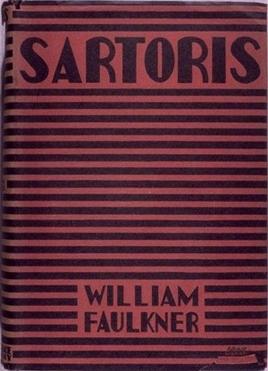
Sartoris is a novel, first published in 1929, by the American author William Faulkner. It portrays the decay of the Mississippi aristocracy following the social upheaval of the American Civil War. The 1929 edition is an abridged version of Faulkner's original work. The full text was published in 1973 as Flags in the Dust. Faulkner's great-grandfather William Clark Falkner, himself a colonel in the American Civil War, served as the model for Colonel John Sartoris. Faulkner also fashioned other characters in the book on local people from his hometown Oxford. His friend Ben Wasson was the model for Horace Benbow, while Faulkner's brother Murry served as the antetype for young Bayard Sartoris.
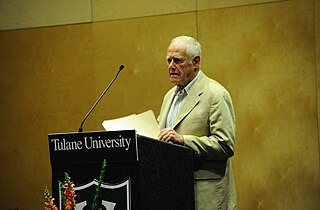
James Arnold Horowitz, better known as James Salter, his pen name and later-adopted legal name, was an American novelist and short-story writer. Originally a career officer and pilot in the United States Air Force, he resigned from the military in 1957 following the successful publication of his first novel, The Hunters.
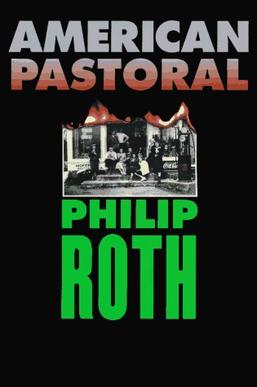
American Pastoral is a Philip Roth fiction novel published in 1997 concerning Seymour "Swede" Levov, a successful Jewish American businessman and former high school star athlete from Newark, New Jersey. Levov's happy and conventional upper middle class life is ruined by the domestic social and political turmoil of the 1960s during the presidency of Lyndon B. Johnson, which in the novel is described as a manifestation of the "indigenous American berserk". It is the first in Roth's American Trilogy, followed by I Married a Communist (1998) and The Human Stain (2000).
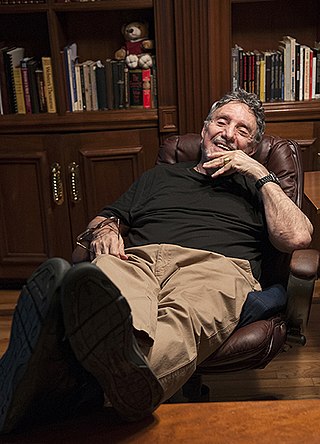
William Peter Blatty was an American writer, director and producer. He is best known for his 1971 novel The Exorcist and for his 1973 screenplay for the film adaptation of the same name. Blatty won an Academy Award for Best Adapted Screenplay for The Exorcist, and was nominated for Best Picture as its producer. The film also earned Blatty a Golden Globe Award for Best Motion Picture – Drama as producer.
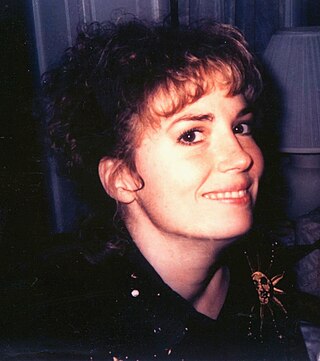
Since the founding of the Church of Scientology in 1954 by L. Ron Hubbard, the relationship between Scientology and psychiatry has been dominated by strong opposition by the organization against the medical specialty of psychiatry and of psychology with themes relating to this opposition occurring repeatedly throughout Scientology literature and doctrine. According to the Church of Scientology, psychiatry has a long history of improper and abusive care. The group's views have been disputed, criticized, and condemned by experts in the medical and scientific community and have been a source of public controversy.

Father Damien "Demis" Karras, SJ, is a fictional character from the 1971 novel The Exorcist, its 1983 sequel Legion, one of the main protagonists in the 1973 film The Exorcist, and a supporting character in The Exorcist III, the 1990 film adaptation of Legion. He is portrayed by Jason Miller.

Irvin David Yalom is an American existential psychiatrist who is emeritus professor of psychiatry at Stanford University, as well as author of both fiction and nonfiction.
Mary McGarry Morris is an American novelist, short story author and playwright from New England. She uses its towns as settings for her works. In 1991, Michiko Kakutani of The New York Times described Morris as "one of the most skillful new writers at work in America today"; The Washington Post has described her as a "superb storyteller"; and The Miami Herald has called her "one of our finest American writers".
The William Faulkner – William Wisdom Creative Writing Competition is one of America's leading literary competitions and has been presenting awards in fiction, nonfiction and poetry since 1993. The competition is named after the Faulkner Society’s namesake, novelist William Faulkner, and William Wisdom of New Orleans, a literary scholar known for his collection of William Faulkner memorabilia. The event is sponsored by the Pirate's Alley Faulkner Society of New Orleans. The contest draws celebrity literary judges, and regular participants have included John Biguenet, Stuart Dybek and Bret Lott.

Pressure Point is a 1962 American psychological drama film directed and co-written by Hubert Cornfield. It stars Sidney Poitier and Bobby Darin, about a prison psychiatrist treating an American Nazi sympathizer during World War II.
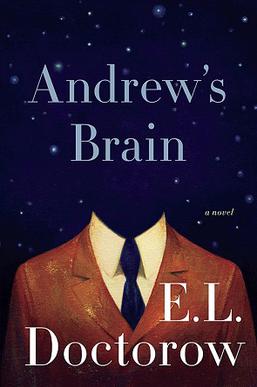
Andrew's Brain is a novel written by E. L. Doctorow, published in 2014. It was Doctorow's last novel to appear before his death in 2015.
Angelica Hamilton was the second child and eldest daughter of Elizabeth Schuyler and Alexander Hamilton, who was the first U.S. Secretary of the Treasury and one of the Founding Fathers of the United States.

Marlon Bundo, also known as Bunny of the United States (BOTUS), was a rabbit belonging to the family of Mike Pence, the 48th vice president of the United States from 2017 to 2021.

















